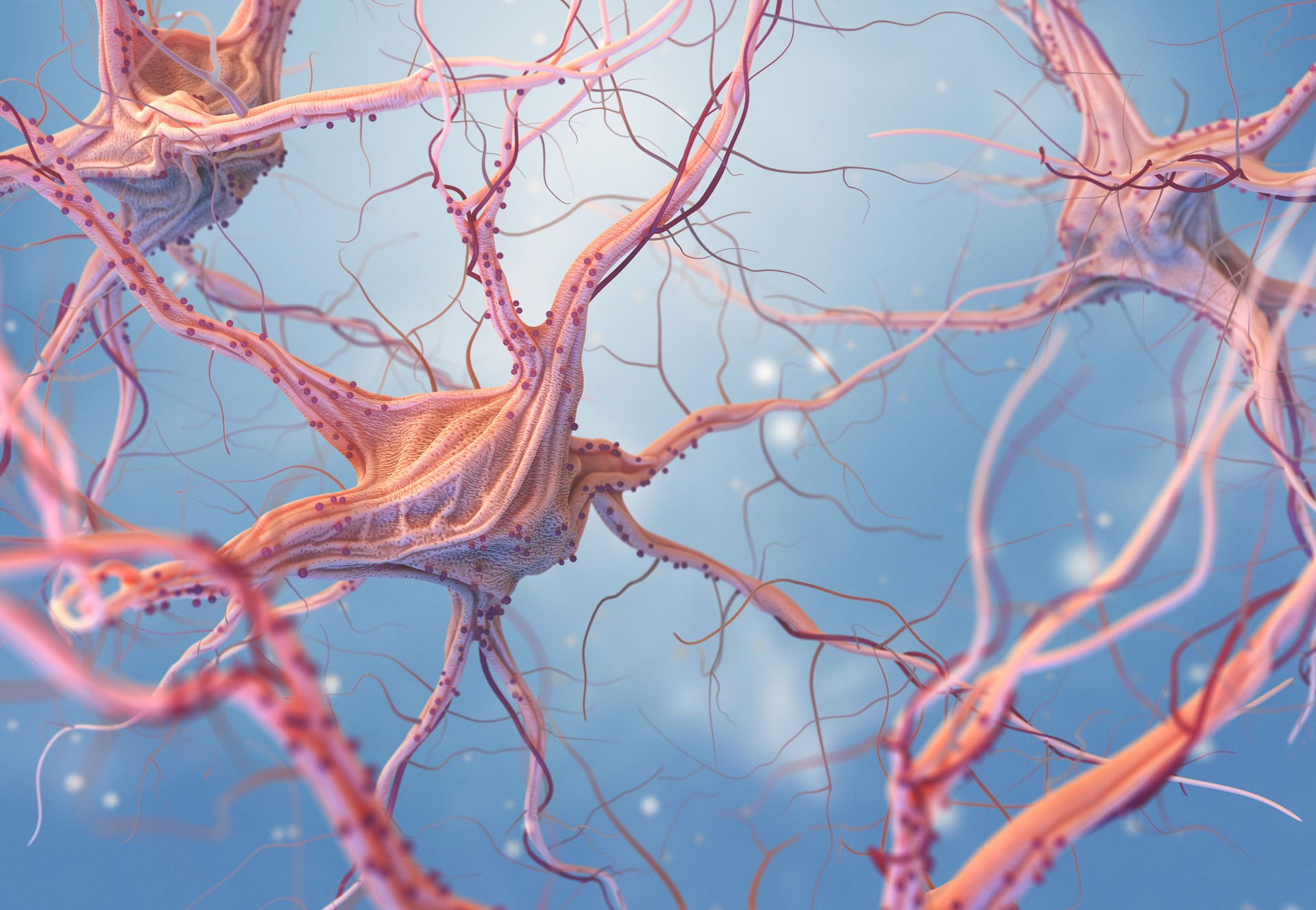Multiple Sclerosis (MS) is a chronic illness that affects the central nervous system, disrupting the flow of information within the brain and between the brain and body. Understanding the range of multiple sclerosis symptoms is crucial for those living with the condition and their caregivers.
Multiple Sclerosis symptoms can vary greatly from person to person and can change in severity and type over time, making it a challenging condition to manage. This article delves into the most common symptoms associated with MS, offering insights into how they manifest and impact daily life, as well as strategies for coping with these challenges.
Understanding Multiple Sclerosis: An Overview of the Disease

Multiple Sclerosis (MS) is a chronic and potentially disabling disease that affects the central nervous system, which includes the brain, spinal cord, and optic nerves. It is widely recognized as an autoimmune disorder where the immune system mistakenly attacks the myelin sheath—a protective covering of nerve fibers—leading to inflammation and subsequent damage. This demyelination process disrupts the communication between the brain and the rest of the body, resulting in a wide range of multiple sclerosis symptoms.
Multiple sclerosis symptoms vary greatly from person to person and can include motor and sensory disturbances, visual impairments, cognitive challenges, and issues with coordination and balance. Early signs often include numbness or weakness in one or more limbs, tingling sensations, unsteady gait, and partial or complete loss of vision, typically in one eye at a time. As the disease progresses, these symptoms can become more pronounced and may lead to significant physical and cognitive disabilities.
Although the exact cause of MS remains unknown, it is believed to be a combination of genetic predisposition and environmental factors. There is currently no cure for MS, but various treatment options are available to manage symptoms and modify the disease course. Understanding these aspects is crucial for those impacted by the disease, enabling them to navigate their condition more effectively and seek appropriate care and support.
Common Early Symptoms of Multiple Sclerosis
Multiple sclerosis (MS) is a complex and often unpredictable disease that manifests through a variety of symptoms, especially in its early stages. Understanding these early symptoms is crucial for timely diagnosis and intervention. One of the most common early multiple sclerosis symptoms is fatigue, which is pervasive and often debilitating. This fatigue can significantly impact daily activities and quality of life.
Numbness and tingling are also frequent early indicators, typically affecting the face, body, or extremities. These sensations may come and go, varying in intensity. Muscle weakness and spasms are additional symptoms that can impair mobility and coordination, leading to challenges with walking and balance.
Visual disturbances are another hallmark of early multiple sclerosis symptoms. Many individuals experience blurred or double vision, which can be alarming and disruptive. In some cases, optic neuritis, characterized by pain and temporary vision loss in one eye, may occur.
Cognitive issues such as slowed thinking and difficulty concentrating can also emerge in the early stages of MS, complicating everyday tasks and work responsibilities. Furthermore, bladder and bowel dysfunction, including incontinence and constipation, are not uncommon.
Recognizing these early symptoms is essential for seeking medical advice and initiating treatment plans that can help manage the disease and improve long-term outcomes.
Main Symptoms
Understanding the diverse range of multiple sclerosis symptoms is essential for managing and navigating this complex condition. Multiple sclerosis (MS) can affect different parts of the central nervous system, leading to a variety of motor, sensory, cognitive, emotional, and other systemic symptoms.
In this section, we will delve into the most common symptoms associated with MS, providing detailed information on how they manifest and affect daily life.
Motor and Sensory Symptoms
Motor and sensory symptoms are among the most common and recognizable signs of MS. These symptoms often include:
- Muscle weakness: This can affect the arms and legs, making it challenging to perform everyday tasks or maintain physical activities.
- Spasticity: Stiffness or involuntary muscle spasms can restrict movement and cause discomfort.
- Loss of balance and coordination: Problems with walking or standing are frequently reported, often due to issues with balance and coordination.
- Numbness and tingling: These sensations typically occur in the face, body, or extremities and may come and go.
Cognitive Symptoms
Cognitive impairments can also be prevalent in people with MS, impacting their ability to process information and complete daily tasks. These symptoms may include:
- Slowed thinking: Processing information can become slower, affecting decision-making and problem-solving abilities.
- Difficulty concentrating: Maintaining focus on tasks can be challenging, leading to difficulties in work or personal activities.
- Memory issues: Forgetfulness or difficulty recalling information is also common.
Emotional and Psychological Symptoms
Living with MS can take an emotional toll, leading to various psychological symptoms:
- Depression: Feelings of sadness or hopelessness are common and can significantly impact quality of life.
- Anxiety: Constant worry or fear about the progression of the disease and its impact can contribute to anxiety.
- Mood swings: Emotional instability or rapid changes in mood may also occur.
Visual Disturbances
Visual problems are frequently among the earliest indicators of MS and can include:
- Blurred or double vision: These disturbances can be particularly disruptive in daily activities.
- Optic neuritis: Characterized by pain and temporary vision loss in one eye, this condition is often an early sign of MS.
Fatigue
Fatigue is one of the most common and disabling symptoms of MS. It can manifest as:
- Severe tiredness: A pervasive sense of exhaustion that doesn’t correlate with physical activity level.
- Mental fatigue: Difficulty maintaining mental energy and focus over extended periods.
Pain and Discomfort
Pain associated with MS can vary widely but is a significant concern for many:
- Neuropathic pain: Sharp, stabbing, or burning pain resulting from nerve damage.
- Musculoskeletal pain: Aching or soreness due to muscle weakness or spasticity.
Speech and Swallowing Difficulties
MS can affect the muscles involved in speech and swallowing, leading to:
- Dysarthria: Slurred or slow speech that can be difficult to understand.
- Dysphagia: Difficulty swallowing, which can increase the risk of choking or aspiration.
Bladder and Bowel Dysfunction
Bladder and bowel issues are prevalent in individuals with MS and can include:
- Urinary incontinence: Loss of bladder control, frequent urges to urinate, or difficulty emptying the bladder completely.
- Constipation: Difficulty with bowel movements, leading to discomfort and potential complications.
Sexual Dysfunction
MS can also impact sexual function, including:
- Reduced libido: Decreased interest in sexual activity.
- Erectile dysfunction: In men, difficulty achieving or maintaining an erection.
- Orgasmic dysfunction: Difficulty reaching orgasm or experiencing less intense orgasms.
Spasticity and Muscle Stiffness: Causes and Relief
Spasticity and stiffness are common MS symptoms that can severely limit mobility:
- Causes: Damage to the nerve pathways controlling muscle movement can result in increased muscle tone and reflexes.
- Relief: Physical therapy, medications, and stretching exercises can help manage these symptoms.
Heat Sensitivity
Many individuals with MS experience worsening symptoms in response to heat:
- Uthoff’s phenomenon: An increase in body temperature can temporarily exacerbate MS symptoms.
- Coping strategies: Staying cool, using air conditioning, and avoiding hot environments can help mitigate these effects.
In conclusion, the diversity and unpredictability of multiple sclerosis symptoms make it essential for those affected to work closely with healthcare professionals to develop personalized management strategies. Understanding these symptoms and their impact is a critical step in navigating life with MS effectively.
Adapting to Changing Symptoms: Strategies for Flexibility and Resilience
Living with multiple sclerosis (MS) involves continually adapting to new and unpredictable symptoms. The nature of MS means that symptoms can vary from day to day, requiring a flexible and resilient approach to manage the condition effectively. Here are some strategies to help navigate these changes:
- Stay Informed and Proactive: Regular consultations with healthcare professionals, such as those at the Center For Neurology in Lutz, Florida, can provide essential guidance and adapt treatment plans as needed.
- Embrace Physical Activity: Gentle exercises like yoga, swimming, or tai chi can improve muscle strength, balance, and flexibility. These activities not only alleviate symptoms but also boost overall well-being.
- Cognitive and Emotional Support: Cognitive-behavioral therapy (CBT) and acceptance and commitment therapy (ACT) have proven effective in managing emotional changes associated with MS. Seeking support from mental health professionals can help build resilience.
- Home Adaptations: Simple modifications at home, such as installing grab bars or using adaptive devices, can make daily tasks easier and safer.
- Temperature Regulation: Since heat sensitivity is common, maintaining a cool environment through air conditioning or cooling vests can help manage symptoms.
- Nutrient-Dense Diet: A balanced diet rich in vitamins and minerals supports overall health and can help mitigate some MS symptoms.
By implementing these strategies, individuals with MS can better manage their symptoms and maintain a higher quality of life. For personalized advice and treatment options, consider consulting the specialists at the Center For Neurology in Lutz, Florida.

